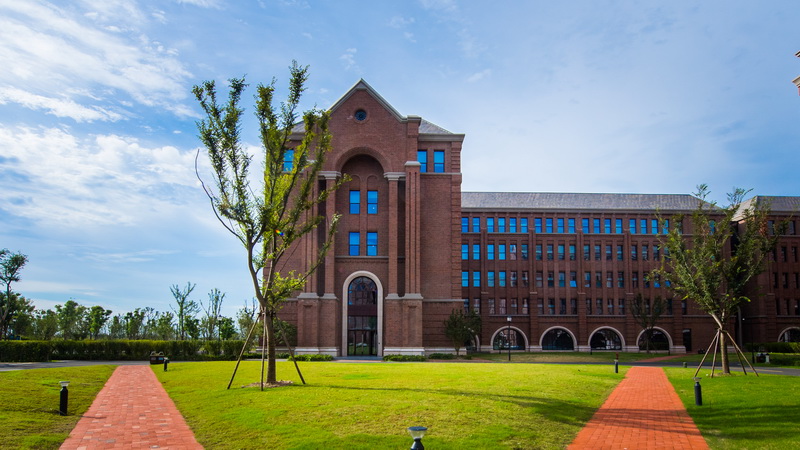
My story of coming to ZJU International Campus as a professor is quite unique and it is worth telling right from the beginning. Unlike many professors in ZJU International campus, for the past twenty years I have been working in the forefront of industry, and not in academia. To be very honest, I have not considered becoming a professor at all when I returned with my family at the end of 2019. However, only after two years returning to the motherland, and one year at International campus, I will say that coming to ZJU international campus has long been written into my destiny, and I’m simply following it.
How can I be so sure? I think this is what we call “yuan”, or fate. Although becoming a professor was not in my plan, I happened to be invited by the organizer of a blockchain summit in Hangzhou in 2018. I came with the International Telecommunication Union delegation (I was chairing the Digital Fiat Currency focus group at the time). Purely by chance, a friend of mine introduced us to Prof. BEN Shenlin, who in term invited us to his inaugural ceremony of ZIBS. I remember the exact date, the 18th of October. We also participated in the Fintech forum at the ZIBS inauguration ceremony with professors in Cambridge and ex-prime minister of South Korea. Of course I didn’t realize then, that I was at the right place and at the right time: the birth of ZIBS that became my future destiny.
There are two more events that can only be explained by “Yuan”. The first is that my son was born on August 13th 2016, three days before the official birth of the International Campus, and my daughter was born on the day that I was offered the professorship at ZIBS. This CAN NOT be coincidence!

For the past twenty years, I have spent ten years each working on two very important subjects: Digital Identity and Digital Currency. While visiting Stanford University in 2000 as a visiting professor, I was asked by a start-up company to test their product for security flaws. Their customer was the US Department of Defense. I helped the company passing the security assessment by the National Security Agency (NSA), and in term they asked me to join the company as the Chief Security Architect. At the time I was not satisfied with the lack of access to top level security problems in the real world if I continue to stay in academia, so such an industry opportunity was perfect for a young entrepreneur-at-heart like me. For ten years I oversaw the technology development of digital identity, it’s acceptance by the entire US federal government identity system. I also helped to make it a standard called FIPS 201 adapted by NIST. The technology eventually was adopted by multiple industries including banking, transportation, and government, including the digital identity card used by everyone in China today.
At the height of my security career, I had the opportunity to found the world first company with the purpose of building the entire issuance and circulation system for a Central Bank issued digital currency. We were funded by Ray Dalio (Bridgewater Associate) and Pierre Omidya (eBay) because our approach was so unique and practical at the same time. This led us to South East Asia, Africa, and Latin America, which coincided exactly with one-belt and one-road map. We created the company at 2011, before any Central Bank began considering a Central Bank digital currency. In 2017, I joined force with People’s Bank of China Digital Currency Institute, and formed the ITU focus group on Digital Fiat Currency, and was elected the Chairman,working with world organizations such as IMF, BIS, ISO, and many central banks in promoting Central Bank Digital Currency around the world.
Which brings me to why I decided to join Zhejiang University International Business School as a full-time professor. There are three main reasons: (1) Zhejiang University being one of the top universities in China, and International Campus located at the heart of Yangtze River Delta; (2) International Campus leadership, including Prof. HE and Prof. OUYANG’s, encouragement of multi-disciplinary research and education, and Prof. BEN’s re-assurance that coming from industry should be considered a merit, not a shortcoming in his business school vision; (3) my determination to use the next ten years of my time to apply digital currency, blockchain and security technology, and my experience in working with international organization to help the internationalization of RMB. Zhejiang University provided the perfect academic, government and industry collaboration platform for me to do exactly this.
After one year of joining ZIBS and International Campus, I am fully convinced that I have made the best decision. When I first arrived, I was so impressed with the architecture design of the campus, not just the buildings, but the holistic approach that the architect took to layout the campus. My favorite is the combination of a Campanile (reminded me of Berkeley) and the fifteenth arch bridge. It has such a unique appeal and sets the tune for the international campus: building global academic excellence with Chinese culture as a bridge linking the whole world.
In the short one-year period I spent at ZIBS, I have been very impressed with the leadership of ZIBS, Prof. BEN, dean of ZIBS, and QU Haidong, vice dean of ZIBS, and the dedication of both the administrative team and the academic staff of ZIBS. It made my transition, both from Silicon Valley to Haining, and from industry to academia very smooth. I have also had many discussions with the leadership of the international campus. They gave me much encouragement as well as practical suggestions to quickly become a constructive member of the international campus. The guiding principle of my working at the international campus is the five I's advocated by ZIBS: International, Interdisciplinary, Inclusive, Innovative, and Integration. I will continue to work with my industrial partners on promoting the internationalization of RMB, working with international organizations, especially those in one-belt and one-road countries.
One year is short, but provides a good time to assess one's progress towards one's ten-year plan. What I have done with my colleagues at ZIBS and the International Campus, and with my colleagues at Zhejiang University at large, I'm very confident that I will achieve my goal.





